Several years ago, while on a business trip to Tokyo, Randy Sabbagh was under intense stress. The looming pressure of his project’s tight deadline felt as if the city skyline itself was bearing down on him.
A colleague suggested that he try Shinrin-yoku—or forest bathing—in hopes that he could use the practice to set aside the burdens he was carrying, if even for a short while, and reap rejuvenation.
In an effort to balance mounting workloads, members of Japan’s urban population began practicing what would eventually become known as Shinrin-yoku, in the 1980s.
Shinrin (forest) yoku (bathing) was officially sanctioned and defined in 1982 by the director general of the Agency of Agriculture, Forestry, and Fisheries as, “Making contact with and taking in the atmosphere of the forest.”
While forest bathing can be undertaken in a more expansive forest environment, it can also be practiced in stollen oases, like city parks. The practice encourages participants to take in their surroundings, deeply observe elements of nature, and to leave preconceived notions (and phones) behind.
The main principles of forest bathing are to go in silence, and to go slow. The purpose of the practice isn’t physical exertion—the exercise here is to open one’s awareness.
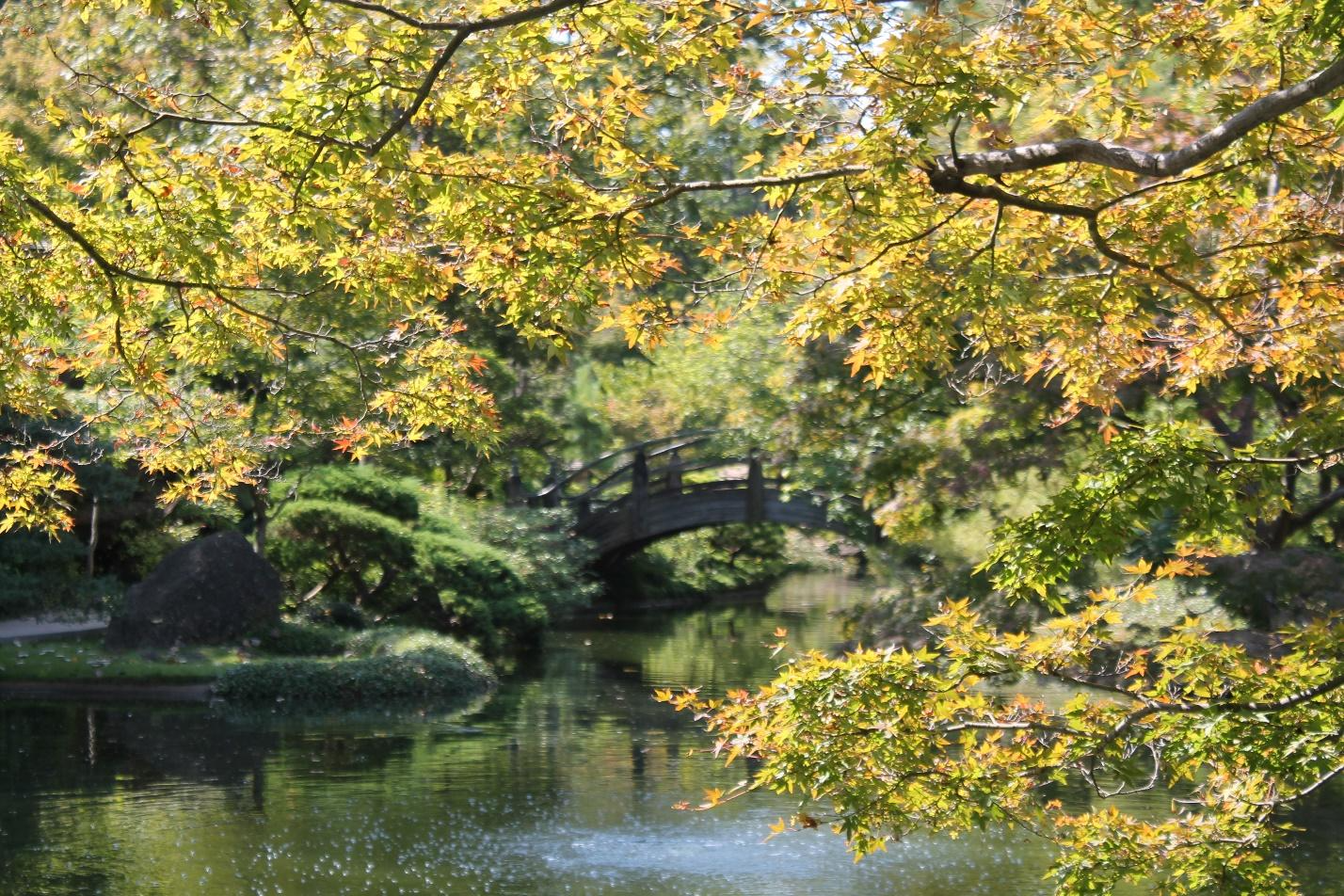
Courtesy of Fort Worth Botanic Garden
Sabbagh has been a lover of nature since his childhood when he was introduced to hiking, sailing and mountain climbing by his grandparents; and yet, he was dubious.
Realizing he had nothing to lose, and potentially something to gain, he tried it.
Incredibly, he found that it really did help him feel better. “Before, I was a total bundle of anxiety and stress due to the ridiculous timeline and pressures to meet it. After I ended my session of immersion in the nature around me, I felt much better physically,” Sabbagh said. “My clarity in seeing details was a lot sharper.”
He was so taken with the practice that he made a point of dedicating his lunch breaks to it for the remainder of the month he was in Japan.
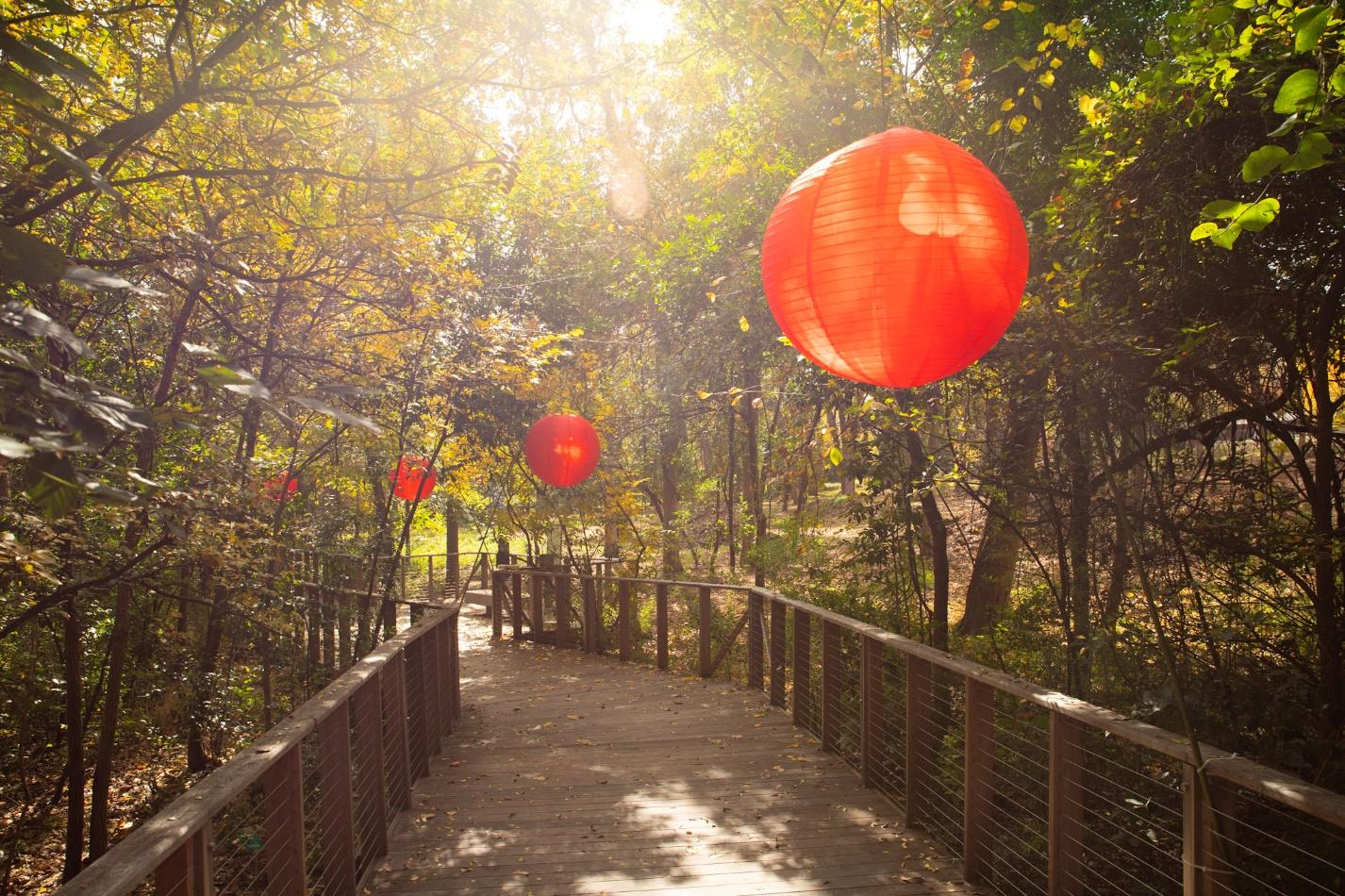
Courtesy of Fort Worth Botanic Garden
A life changing souvenir
While Sabbagh felt immediate, noticeable results from forest bathing, he is far from alone. Since 2004, there have been ongoing studies in Japan that measure the effects of immersion in forest environments on human health.
The results of these studies have shown that forest bathing reduces stress hormones, boosts the immune system, lowers blood pressure and heart rate, and improves sleep. Additionally, it reduces anxiety, depression, anger, fatigue and confusion.
Given these positive results, and scores of others, forest bathing is being adopted as a new branch of medical science known as Forest Medicine. The preventative therapy, nestled under the alternative medicine umbrella, encourages people to participate in forest immersion for at least 2 hours per week to realize the greatest benefits.
Just as nature heals itself when unnatural stressors are removed from an environment, so can the human body.
In an age of rampant hustle culture, forest bathing—in all its simplicity—is revolutionary.
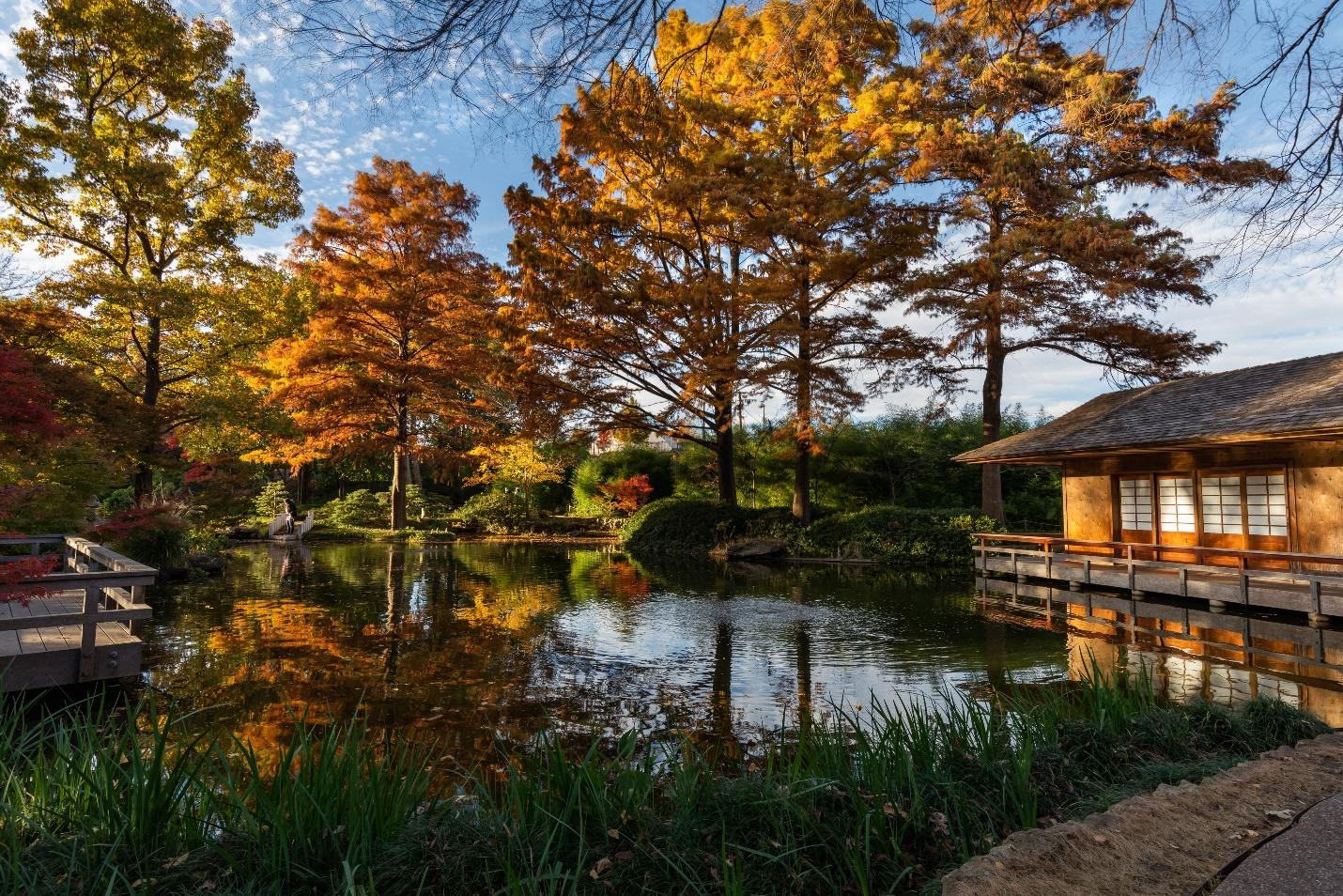
Courtesy of Fort Worth Botanic Garden
As Sabbagh says of his practice, “I’m not focused on an agenda or forcing an outcome, I’m taking in what’s around me and letting what I’m taking in drive my experience,” noting that, “I quickly learned to appreciate the goal of the practice, which is to be open to the stream of consciousness of nature around me as opposed to projecting my own thoughts on it.”
While he has kept up a regular forest bathing regimen since his inaugural experience in Japan, Sabbagh notes that he especially enjoys the practice while traveling as it lends itself well to connecting more deeply to a given place.
Though forest bathing enhances Sabbagh’s travels, he has expanded his affinity for it in his home community of Fort Worth, Texas—first through the continuation of his own practice, and now through sharing it as well.
He currently leads monthly forest bathing excursions at the Fort Worth Japanese Garden.
Sharing the wealth
The Forth Worth Japanese Garden is a 7.5-acre sanctuary nestled within the 120-acre refuge of the Fort Worth Botanic Garden. This traditional Japanese garden is designed in the style of the Edo period, which is characterized by strolling gardens.
Here, insulated from the sounds of the bustling city, forest bathing participants can easily disperse—accessing hidden nooks, strolling by tranquil koi ponds, and appreciating the delicate and ever-changing beauty of the landscape.
Populated by cherry trees, Japanese maples, bamboo and bridges, the garden features few flowers, save for in the spring. This pays tribute to the Japanese idea of Mono no Aware—the transient beauty of things.
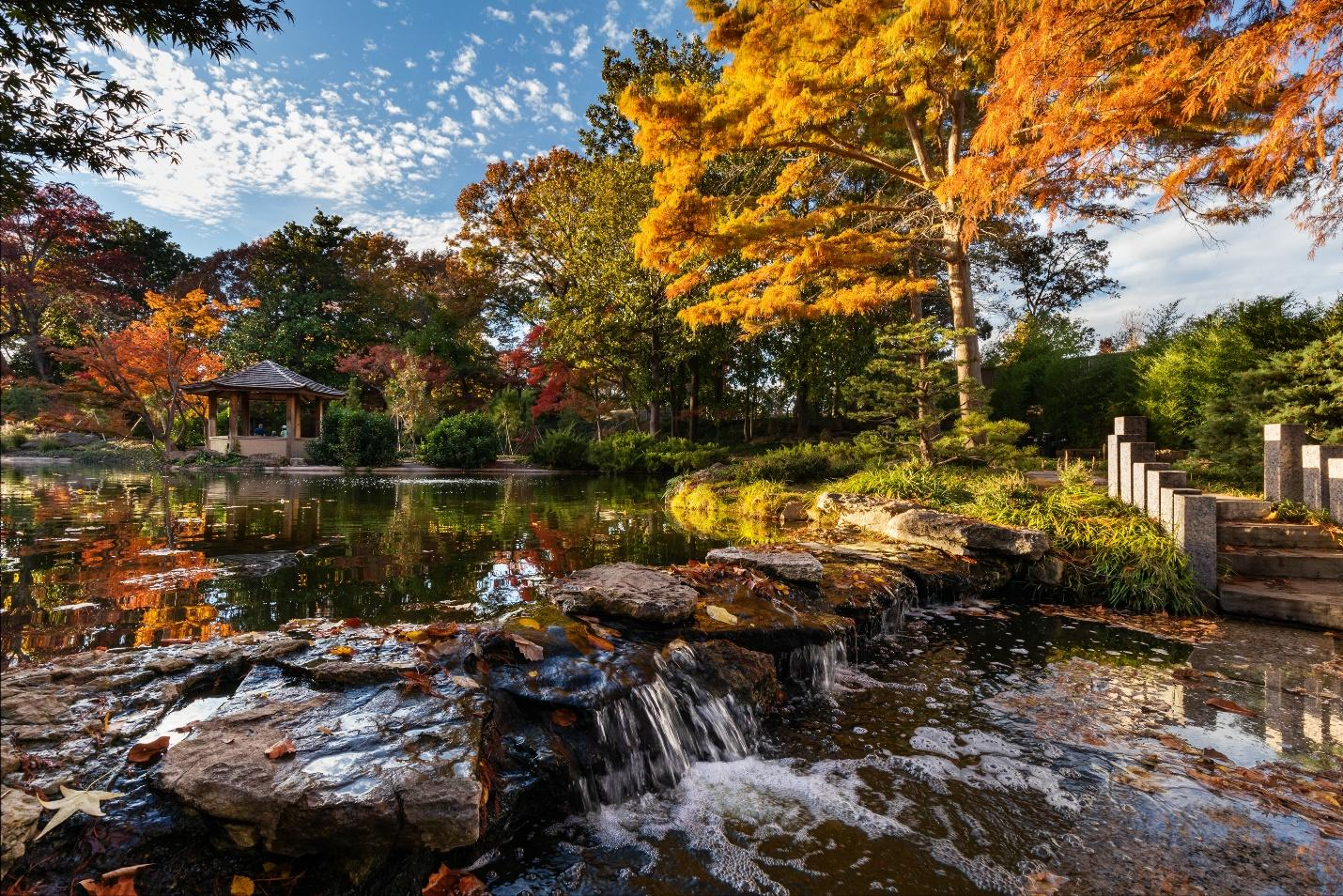
Courtesy of Fort Worth Botanic Garden
A historical brochure from the garden offered this information to visitors: “In Japan a tea garden, or stroll garden, offers more than a place to cultivate favorite plants. It provides a place for meditation, relaxation, repose, and a feeling of tranquility.”
“The quiet shades of green and various textures compose garden peacefulness. A Japanese garden is designed to be a ‘mirror of nature’.”
Completed in 1973, it has welcomed visitors for 50 years to slow down and imbibe the serenity around them.
This spirit is pervasive in forest bathing and the culture it grew out of. Sabbagh now invites people into this space, physically and energetically, encouraging them to connect to the practice in their own unique way.
Sabbagh says, “Each person will have their own experience. . . I’ve heard people describe how much more aware they were of smells, colors and the movement of the air around them. . . when combined [with] that immersive experience—that’s the goal of Shinrin Yoku.”
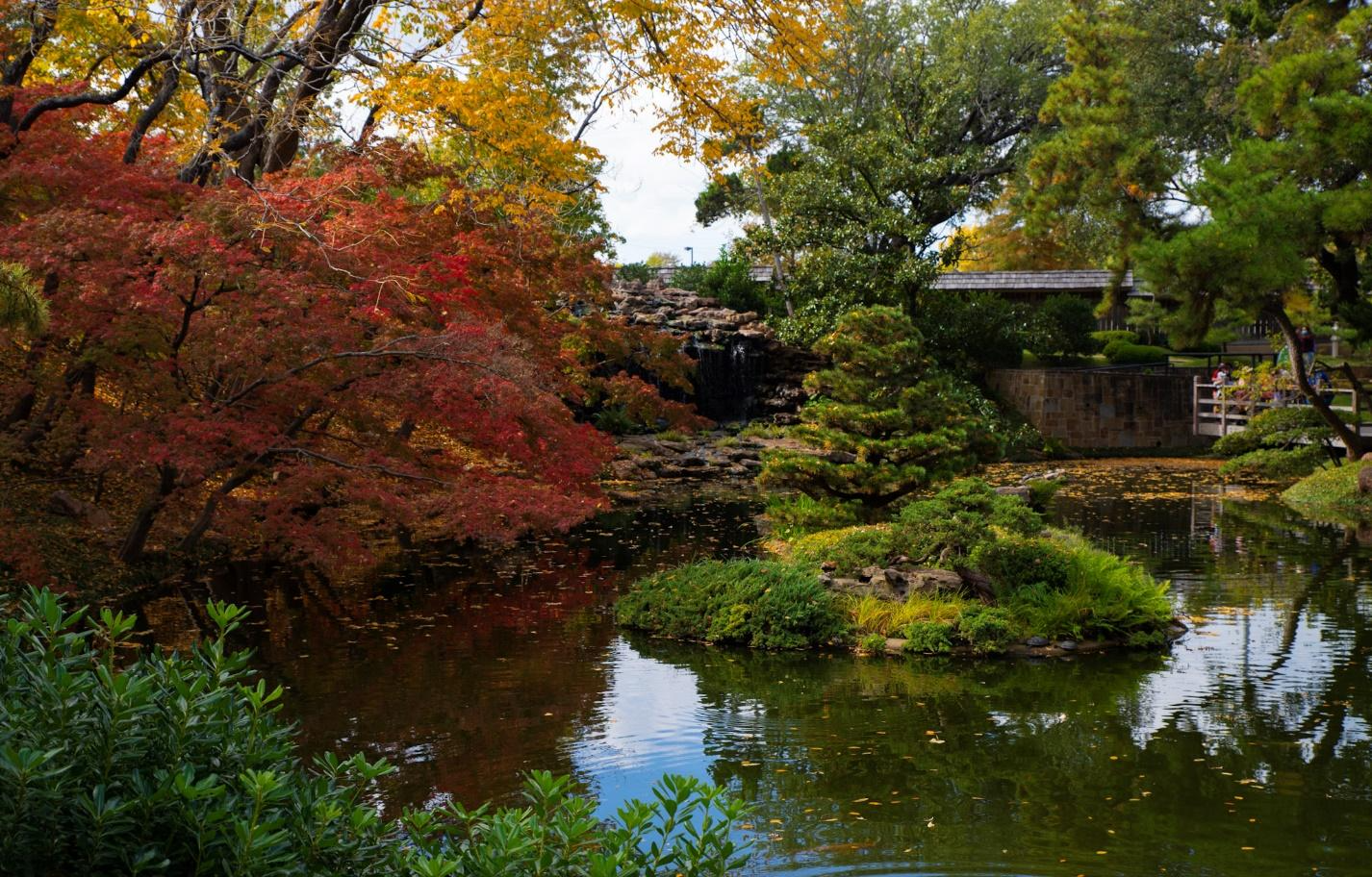
Courtesy of Fort Worth Botanic Garden
Throughout his experience facilitating forest bathing, he has found that people from all walks of life are drawn to the practice. While a common thread is the desire to connect with nature and reap the benefits of a meditation-like experience, so is the attraction to the unstructured nature of the practice and low barrier to entry.
“This is a great opportunity to relax [and] let go—don’t focus on an outcome and just be with nature,” Sabbagh said. ”Let nature guide your experience and absorb what’s going on without an agenda or purpose.”
Whether it’s in a forest, garden or park, forest bathing offers us each a simple invitation to disrupt the unnaturally hectic pace of modern life and attune with the calming energies of the plants around us. It is the acceptance of this invitation that can restore balance to our minds and bodies, fortifying us to face our days outside the forest.
